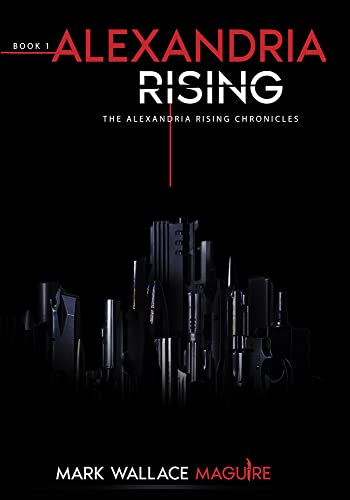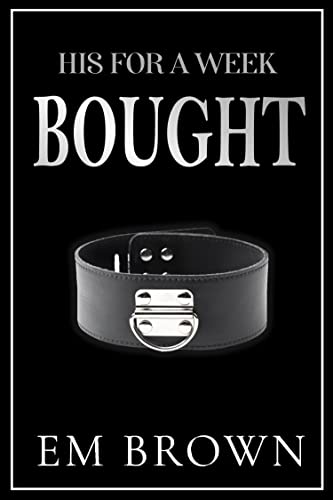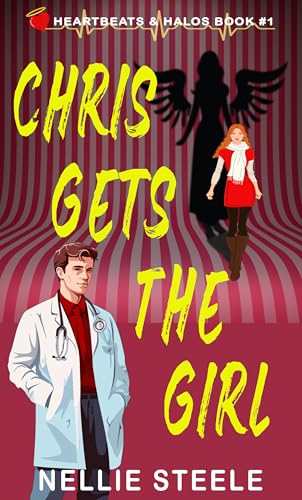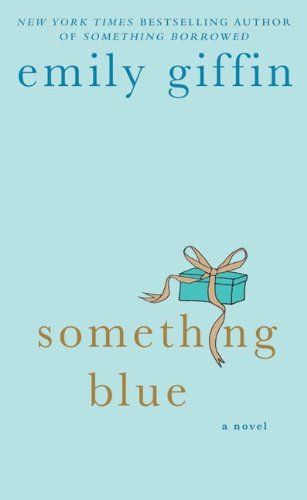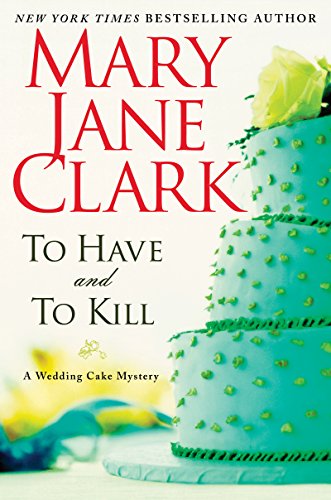Last Ride of the Ugly Bus is our Thriller of the Week sponsor, and author Gunnar Bloom is sharing a lengthy, free excerpt!
1
Better people would stand to applaud Lily Ward’s valedictorian speech right now, ever so generous in the way it burnished our dull pasts and oh-so inspiring in the way it extolled our mediocre futures. But hardly any of us sitting here today are good people, let alone better ones, and she will have to make do with our polite but perfunctory handclaps.
I swipe a flood of tears away from my eyes as Lily leaves the lectern, the dignity in her posture softened by a modesty that reveals itself in the way she tucks her hair behind her ear as she sidesteps down the stage stairs in her low heels. If this were a world where virtue – basic human goodness – was as important as minimum graduation requirements, she’d be wearing a halo this afternoon, not a mortarboard.
Around me, the colors of Canfield’s Founders Common blaze vibrant, almost surreal, under white-hot sunlight. God or the universe or whoever it is that controls Northern California’s climate has turned on a blinding June day for commencement. This is weather money couldn’t buy. Or, then again, maybe it is. When it comes to Canfield parents and the miracles their fortunes can make happen, nothing surprises me anymore.
The lush lawn we’re seated on, the glorious American Renaissance architecture framing us, the azure skies and dazzling sun: the world is beautiful, and our futures look – quite literally – bright. Immersed in a tableau of such perfection, our parents probably believe that anything is possible of us right now. So full of hopes, they are, and so likely to have them dashed, too.
“Dude,” whispers Chip Lyons from beside me. “Are you, like, crying? Do you want my hanky or something?”
“I’ll take your Ray Bans, if you’re offering,” I say in my normal speaking voice, a basso rasp that girls often like to tell me sounds “way hot” and which Bianca L’Estrange’s bony elbow in my ribs right now tells me also sounds way loud. “This sun is fucking murdering my eyes.”
“Sorry, man, you know mine have gone all vampire on me since the LASIK,” whispers Chip. “But at least the videos are going to look awesome, hey?”
Chip would know, of course. His father is a notoriously anti-auteur Hollywood film director who insists that when you lose control of a movie to meddling studio executives – when you no longer control the cast or the sets or the script, a perfect storm of creative emasculation that occurs often, apparently, or at least to him – all that’s left is lighting, lighting, lighting.
“If you’re going to make a big pile of shit, boys,” he told me and Chip once, when he took us sailing on San Francisco Bay during one of the monthly weekends he spends away from LA, the glamorous setting of his happy second marriage, to spend time with Chip, the only good thing to have come out of his miserable first, “at least make sure it’s good-looking shit.”
For a passing wisdom, Mr Lyons’s words have lingered lastingly in my mind, perhaps because they seem to echo my mother’s frequent, if more politely-expressed, reminders that, “Darling, everything always comes down to appearances.” She, of course, is the same person who regularly cautions that I should think carefully before I speak, lest people construe my words the wrong way. And though I’m not sure what would be a “right” meaning to ascribe to advice as superficial as hers, I am almost certain that “wrong” is the only way to describe how I have boiled down her counsel, viz., “If appearances are all that really count, then you don’t have to be a good person. You just have to look like one.”
And in order to live true to this new conviction of mine, I have decided that, from now on, I am going to be the very worst person I can be. The rest of the world just won’t know it.
I check the time on my phone, then look up. Despite the acute discomfort of being sun-blinded, I cannot help but smile. Because the storm cloud I’ve arranged for is going to roll in any minute now.
People are going to get wet.
*
As Principal Monahan begins his closing address on stage, his normally imposing stature diminished by an enormous Canfield crest on the green velvet drape behind him, Bianca L’Estrange fixes her lipstick in a compact. Her hair hangs down in lustrous, Barbie-blonde waves beneath her mortarboard. Other than the classic red Dior she’s tracing over her mouth, however, her face is bare of all else but a slather of moisturizer that makes her skin look as smooth and perfect as a bone china teacup. She’d be beautiful, if only she’d smile.
“A smile doesn’t cost you anything,” I told her once during junior year.
“Everything costs something,” she’d replied, and, after I thought her words over, I’d realized she was right. Her reign as one of the Queen Bees at Canfield has been underpinned by a campaign of unrelenting terror since we were freshman, after all. A smile would be a glimpse of humanity, and this – from her – would only serve as a revelation of weakness, not to mention an invitation for sedition. Misery, I know now, is how Bianca has survived: not only other people’s, but also her own.
Principal Monahan is talking up, one last time, our worthinesses to enter society, feeding shameless half-truths and exaggerations to our smug parents, when Bianca suddenly yelps. I glance sideways to see that Preston Knight (family fortune: big Silicon Valley) has snatched the lipstick off her. Beside Preston, Tad Kemp-Stiles (family fortune: even bigger Silicon Valley) leans forward and pushes the cap off the head of Milky Ho, seated in the row of white folding chairs in front of ours.
As Milky whips her head about in protest, Preston holds the lipstick up against her face. Onlookers choke back laughter at the sight of the ridiculous slash of scarlet it leaves across her cheek and nose.
“Oh my God,” Milky mewls softly, staring at the smeary patches of lipstick that blight her hand after she touches her face, as bloody red and shocking as stigmata.
Her dismay is so abject that it’s not even pitiful. It is simply sad, so sad that I have to look away.
Preston and Tad high-five each other.
Bianca slaps Preston’s hand away when he tries to return the lipstick to her.
“Keep it!” she hisses. “It probably smells like soy sauce now!”
More people laugh, louder this time – but I’m not one of them. I don’t know Milky well – our social circles, as they say, do not intersect – but I do know she doesn’t deserve what Tad and Preston have done to her. Maybe no one would, not on this day of days, although I think if someone drew all over Bianca’s face with lipstick right now, I’d probably laugh my ass off. Then again, if it happened to Bianca, it’d only be because I was her persecutor; I’m the only male at Canfield with enough clout to cross her. There’s probably something in this fact that I ought to be proud of. I’m just not sure I want to be.
I’ve never been one to torment or humiliate people myself, at least not deliberately, but neither have I ever been one to step in to stop others when they do. Maybe it’s been apathy, or maybe it’s been peer pressure, or maybe it’s simply because I’m a wretched excuse for a human being. There’s really no justification, and I doubt it would much matter if I went looking and found one anyway. Because, in the end, we have to accept that we are the very people we’ve let ourselves become. We think we can’t, and then we can; we think we won’t, and then we do. By the time I found the courage to hate the assholes, I’d discovered I had already turned into one myself.
*
We’re on our feet now, for the final stretch of this afternoon’s proceedings. I’m starting to feel a tingle of sunburn on the tip of my nose, only a fraction less insistent than the restlessness that has crept into the crowd. The pomp and ceremony wore thin a long time ago, and people are chafing to embrace the momentousness of this day’s end.
Graduation is important in different ways to different people, I suppose. To the average adolescent, it’s the beginning of the rest of our lives, the sweet hereafter of freedom and possibilities that, as I watch Preston and Tad take turns gulping from a leathered hip flask, I think most of us are probably going to squander. To the average parent, graduation is, doubtless, the hope that we, their darling little boys and girls, are finally going to grow up and do them proud. After last month, when a 2009 Canfield alumna made the papers for bullying her college roommate to suicide, and the month before that, when a 1997 alumnus was indicted on fraud charges for an ingenious Ponzi scheme that wasn’t quite ingenious enough, I think the average parent will have to count themselves lucky if we only disillusion them a little bit less. But for the average senior in this year’s graduating Canfield class, graduation day is the promise of one thing above all others: graduation night. And graduation night means the last ride of Espie Van Deelen’s Ugly Bus.
“I know I speak for the entire school board when I say that we are tremendously proud of this year’s class,” Principal Monahan intones now. “Their academic achievements, their extracurricular accomplishments, their commitments to building a kinder, better society – Class of 2011, we are proud to call you our own.” He pauses for a pregnant moment before going on, ever so solemnly, “If students would please turn their tassels from the right to the left.”
A murmur ripples through the crowd as we hike our tassels from one side to the other.
“Parents and friends, it gives me immense pleasure to present to you the 2011 class of the Canfield School!”
The audience around us erupts into rabid applause. We – students and survivors – hug and jump and shriek and shout. On my face, I try to mirror everyone else’s excitement, even though, inside, I feel like I am sickly-full of nothing, like a starving man who has tried to quell his pangs with glasses of water. This is supposed to be a day that will live on in sepia-hued memories and journal entries with a star or smiley face doodled in the margin beside them. But as far as I am concerned, it cannot end soon enough. Still, I remind myself that life is all about appearances, and I widen my smile and shout out loud and embrace Chip, and then Bianca, too, the latter of whom forgets to hate the former long enough for us to engage in a three-way jump-up-and-down hug, during which Chip’s Ray Bans fall off his face and a lock of Bianca’s hair somehow works its way between my teeth.
Afterward, we join the rest of our classmates in flinging our mortarboards up into the air. For a moment, as I watch the caps fly high, wheeling and flocking like birds, I finally feel a flicker of joy, or something like it. But the cold emptiness returns when a cheap blow up doll floats into view, rising up from behind the stage, pinky pale and obscene. A murmur ripples through the crowd, and my classmates begin to point and laugh, never lowering their fingers, even when falling caps drop like anvils onto their heads.
But people’s hilarities abate in an instant when the doll explodes in a puff of unholy smoke. Everyone ducks instinctively – everyone, of course, except me – and when they peer up over their brows again, they see that the official party on stage – the Canfield board, plus a handful of bureaucratic VIPs – has been showered with flappy plastic fragments and spots of white gunk. Shrill voices ring in the air, and a controlled mayhem reigns as the dignitaries check themselves, and then each other, all while swiping milky slime off their black gowns.
Having recovered from the fright of the blast, my classmates begin to laugh again, harder than before. Our parents, however, are less amused. Mothers have their hands up against their throats, open-mouthed, while fathers, reacting in conspicuous contrast, have clamped theirs firmly shut, lips pressed into thin, furious lines that probably wouldn’t soften even if I told them that the white gloop isn’t what they think it is, no more than a puree of cream cheese and glycerin with a splash of Clorox and fish sauce mixed in. Sam Ingrey funneled the mixture into “Tantalizing Trixybelle” beneath the stage before the ceremony. I know the recipe because I gave it to him, along with the ingredients. Afterward, Sam inflated Trixybelle to a seam-straining bloatedness with helium tapped from a gas cylinder that had “Property of Canfield School Science Department” stenciled on it. I gave that to him, too.
In truth, the only thing about the doll’s mucky end I can admit to being clueless to is how she was released and detonated. I left that detail to Sam. His ability to make it happen was what I fancied to see more than the demise of Trixybelle herself. Ideally, I wouldn’t have had to ruin graduation for the school; as much as I detest Canfield, I love her, too. She has been good to me, which is more than some can say. Just ask Milky Ho. But I needed an excuse to goad Sam into proving he could cause a big bang, and a commencement prank was the only scenario he was willing to be coaxed into.
“Express your anger,” I told him to wear down his reluctance. “Express your contempt.”
When you know someone’s weak point, it’s not hard to come on strong. And now that Sam has shown me how far he is willing to go for his convictions, it is my turn to show myself how far I will go for my own. Because, tonight, for your average senior, the Ugly Bus will be mere entertainment and nothing more, another mindless instance of high school cruelty that gives people an excuse to laugh at someone else’s misfortune. But I’m not your average senior. And tonight at Espie Van Deelen’s party, with Sam’s help – even if he doesn’t know he’s giving it to me – I’m going to prove it.
2
When I am done changing for Espie’s party, I scrutinize my appearance in my dresser mirror, scratching a speck of lint off my Hollister muscle tee and yanking at my jeans, uncomfortably tight like every pair I’ve owned since I started wearing a skinnier cut for fashion’s sake. I am nothing if not a conformist, at least as far as my dress sense is concerned. Some would consider this being a sheep, but I just call it being rational. After all, people who choose not to conform to norms simply end up conforming to non-norms, which, in the end, still means you’re a sheep – just a black one.
Around me is the bedroom that, soon, will no longer be mine.
Large and designer-modern, it boasts a mammoth plasma television and a glut of pricey computer equipment and electronic gizmos. They’ll all be gone shortly, too. My lacrosse and track trophies dominate an entire bookcase. These, I’ve been told, I’ll get to keep, and I’ve already made discreet inquiries about selling them. For things I’ve always treasured, I’ve been disheartened to learn that they’re practically worthless. Little wonder the bank doesn’t want them.
On my window sill, a pot of purple gerbera daisies grow at an angle, leaning into the late afternoon sunlight. My remedial reading group foisted the plant on me several weeks back at my farewell bash at the Burger King on 16th Street in the city, where some of us gather for a late dinner every Thursday night after we’re done at the Center.
When I was fifteen, my father began driving me to the Center in the city’s Mission District once a week to read with disadvantaged youths in an outreach program supported by the charity that my mother chairs, the Goodwill Ladies of Marin County.
“I want you to realize how lucky you are,” he told me.
Later, when I got my license, and my own car, I began driving myself there. I didn’t know why then, and I still don’t know why now. Maybe the truth is, as much as I wish I didn’t possess compassion or a conscience, the sad fact is that I may just do. You can’t choose which traits of your parents you inherit, after all, and even though my father has been dead and buried since March, his bleeding heart still beats strong in me. But at least this is easier to hide than the accent I’ve inherited from my east coast-transplant mother, a slightly la-di-da manner of Connecticut pronunciation that has somehow worked its way into my consciousness and onto my own California-born and -bred tongue.
Something else obvious that can’t be hidden is my resemblance to my father. As I stare at my reflection in the mirror right now, I cannot tonight, any more than I could in any parent-hating moment of my childhood, indulge the fantasy that I might not be my father’s son. There can be no doubt I am his when we share the same wavy brown hair that’s nearly black when wet or styled, and the same fine-boned features that are worshipped by everyone superficial enough to believe that comeliness is next to godliness, and, most conspicuously of all, blue eyes so light against our dark hair that the look of them verges on alien.
I learned a long time ago to use these – my father’s – eyes to my advantage. With them, I have unhinged pretty girls and disarmed wary parents and made myself beloved of even the most jaded teachers at Canfield. Blue simply inspires trust and abets persuasion. It’s the color of clear skies. It’s the color of calm seas. It’s the color that humans are somehow hardwired to believe in. Not for no reason is it the color of big business, I think. With blue, it doesn’t matter if people know they’re getting screwed. With blue, they’ll tell themselves they’re not, even if they really are, and they’ll tell themselves they don’t mind, even if they really do. And maybe it’s the reason why my mother loved my father for so long, and why, in spite of all he did to her, she still does and forever will. He looked her in the eye when he spoke to her the lies that fooled her, the exact same way he looked into mine and fooled me, too.
*
After a last-minute fiddle with my hair, I pocket my cellphone and car keys, then ferret around in my dresser for my set of spares to take with me also. I finally find them buried amongst the loose change that fills a bright yellow Breitling presentation box, which I turned into a coin holder after I removed the watch that came inside of it. I pawned the oversized Navitimer for $2,900 three months back. It would have been worth more, except it had been engraved with “For Titus, On your sixteenth birthday, Love Mom and Dad.”
“Engravings are sad, kid,” said the mustachioed man behind the security screen at the hock shop I slunk into in Berkeley, a forty-minute drive away from anyone I didn’t want to run into.
The cash I pocketed – a pile of spanking clean fifties and hundreds, like they’d been counted out to me by an ATM in exchange for my PIN instead of a hard-faced man in exchange for my birthday present from two years ago – didn’t last a fortnight. I blew every dollar at spring break, keeping up splendid appearances by keeping up with my spendthrift friends. My mother had thought she was doing me a favor by scrounging together the money for me to go to Cabo with them. She didn’t realize that the airfare and hotel were the least of the week’s expenses. Then again, my father was always the one I badgered for money.
Folded in the drawer, beside the box of change, is the acceptance letter from Princeton that I received in April. I collected acceptances from Duke, Dartmouth and Columbia, too, but I binned those long ago.
I open the Princeton letter and read it for the umpteenth time. I still remember the elation of learning I’d been accepted there, a giddying euphoria that I don’t think I’ve felt since some time in the nebulous, every-memory-runs-into-the-next years of my childhood, a happiness so overpowering that I’d just wanted to find the nearest person and hug the living breath out of them. Since then, however, the several short paragraphs of the letter have become little more than a tantalizing promise of something I have earned but perhaps might not claim. Yes, Princeton has one of the best financial aid programs of all the Ivys, but I don’t qualify for it; yes, my maternal grandmother has more money than she’ll be able to spend in the years she has left, but she won’t pay for me; and though my mother has never said she won’t foot the bill for college, the unspoken understanding between us is that she can’t.
The corner of the letter has been defaced with my clumsy handwriting, a single line in capital letters that reads “DON’T LET YOURSELF DOWN.” My father always used to lay these four words on me when he wanted me to do better in some – any – way.
“Because it’s not just about not disappointing me, Titus,” he’d always add afterward. “It’s also about not disappointing yourself.”
And, thanks to the Ugly Bus, I’m not going to. Because the Ugly Bus is how I’m going to pay for Princeton. More importantly, the Ugly Bus is how I am going to make people pay for my father’s death.
*
Espie Van Deelen says she borrowed the idea for the Ugly Bus off a famous underwear designer friend of her mother’s – he, according to hearsay, is a notorious aesthete who banishes hired party staff who aren’t good-looking enough aboard them – but if you know Espie as well as I do, it’s more likely the designer stole the idea off her. And the premise of Espie’s version of the Ugly Bus is simple enough: the eight “ugliest” guests who show their faces at one of her parties, as judged by Espie herself, must run the gauntlet onto a minivan – the so-called Ugly Bus – and leave the party in shame. And though everyone risks a seat on the Ugly Bus by turning up to witness it, we all do so anyway because the prospect of watching someone else’s humiliation is bloodsport we simply can’t deny ourselves the opportunity to see. Courtesy of the Germans, the high priests of cold-blooded pragmatism, there is even a word for this. Schadenfreude: pleasure from someone else’s pain. And, tonight, it is this blackness in the hearts of my peers that I will be depending on in order to slake the desperate need for vengeance that festers deep within my own.
*
I find my mother sitting on the low sofa in my father’s study when I go to check on her before I leave for the party. She looks out place in the middle of the room’s sterile manliness, all leather and wood and chrome.
She doesn’t turn around when I call out to her. Still dressed in the forest green Chanel suit and oversized pearls she wore to my graduation ceremony, she stares at the wall, nursing a glass of red wine. A whole bottle more rests on the low table in front of her. As she twists the glass between her fingers, my eyes are drawn to the white gold wedding band still on her ring finger, and I feel a violent urge to seize her hand and rip it off. But I don’t. My mother has the most beautiful hands, after all, a pair that have never toiled a hard day in their lives, so soft and pale and lovely that treating them roughly would surely be some sort of cosmic crime.
“Are you drinking again, mom?” I say.
“Just a little sip, darling,” she says, her voice a little phlegmy and groggy. “Are you off to Espie’s party?
I ease the wine out my mother’s grip and put it on the low table, just out of her comfortable reach. She sits up and takes my hands in hers.
“I’m so proud of you, Titus. I always am, but today especially.”
“It’s just graduation, mom. It happens to everyone.”
“Your father would have been so proud to see you walk today, too.”
I shrug. “He would’ve been prouder if I’d gotten that scholarship to Duke.”
“You know that’s not true, darling. Your father was a Princeton man. He wanted you to be one as well.” She releases my hands abruptly as she goes on, in a vaguer tone, almost a murmur, “For the life of me, I’ll never understand why he raided your college fund to prop up the business.”
“And I don’t understand why you won’t sue the insurer to get the payout on his policy,” I say, an edge in my voice.
“I’ve told you why, darling. I can’t. I won’t.”
“But dad didn’t kill himself and everyone knows it,” I say through clenched teeth.
“And that’s the way I’d like it to stay, Titus,” she says, frowning at me. “As far as the rest of the world is concerned, your father died of a heart attack.”
“Which is exactly what happened!”
My mother shakes her head. “You know it wasn’t as simple as that.”
“Which is why they’re trying to argue it was suicide!” I say, almost shouting now. “Because they know you’ll have to sue them to get the payout, and then everyone will find out the truth. But he’s dead, mom. Does it really matter if -”
“We’re not having this conversation again, Titus!” she says, raising her voice to match mine. “I’m not going to drag your father’s name through the mud just for a little bit of money.”
“But it’s not a little bit of money,” I say, quieter again, half-hearted in defeat. “It’s a lot of money. Enough to keep the house. Enough to keep the cars.” I pause. “It’s enough to pay for college.”
My mother ignores me and struggles up from her seat to reclaim her glass of wine. She swallows a large gulp as she slumps elegantly back onto the sofa.
“I’m sorry about school, Titus. You know I’d pay if I could. It’s just …”
Now my mother begins to cry. Her tears come with odd little gasping noises, as rhythmic as breathing. The sound is so strange, so very nearly comical, that the first time I ever heard her cry – I was five-years-old, if my childhood memories can be relied upon – I thought she was only pretending to. Tears aren’t something she succumbs to often, mind you. My mother is a woman likes to look like someone who’s in control – even though she rarely actually is – and crying is, of course, the ultimate expression of the loss of it.
I watch as she stems her tears as quickly as they came to her, swiping them away with her dainty, white hands. The sight of her reminds me so much of Milky Ho, so helpless and miserable, that it makes me mad, both at them and myself.
I used to worry about my mother – a lot. But my anxieties are smaller now, or at least I give them shorter shrift than before. Not because I don’t care, but because I’ve come to realize that I don’t need to. Countless people bumble through life and all its tribulations every day of their lives, somehow defying natural selection to not only survive but thrive. And my mother is one such fortunate. She’s a cat that falls out of a window and lands on its feet. She’s a traveler who misses her plane and watches it crash on the runway. She’s a frail flower who somehow always finds the kindness of a stranger to depend upon. My father dying on her will, in the long run, probably transpire as something in the same vein: a terrible happening to have befallen her, but one that, given enough time, she will not only have overcome without trying, but also find herself all the better off than before for it.
“It’s okay, mom,” I say when her last teary hiccup has faded. “Everything’s going to work out.”
I shift on my feet for an awkward moment, then turn about and head for the door. But I stop in my tracks when my mother calls out to me.
“Your father loved you, Titus. He loved both of us. Whatever he’s done to us by … doing what he did – it doesn’t change that. The least we can do for him is make sure people remember him the way he was to them, not what he was to himself.”
After a long pause, I say without turning around, because I just can’t look at her, and also because I suspect she might not want to look at me, “I won’t be back till late, mom. Don’t wait up.”
*
Our garage is big enough to fit five cars, and up until three months ago, it was five that filled it. But after my father died, the green Bentley, the red Ferrari, and the silver Maserati all went. The space they used to occupy looks lonely now, nothing more than spots of oil on the concrete to say that anything was ever really there. My mother’s silver BMW sedan and my black Mercedes AMG SUV have been left to huddle forlornly together in the two spaces nearest the foyer door. Come next week, even they’ll be gone – which is kind of handy, in a way, since the garage, and the house it’s attached to, is going to be lost to us about a week after that, too.
I unlock my truck and stow a heavy backpack I’m donkeying into the trunk, before climbing into the driver’s seat, where I am momentarily dizzied by the strong-smelling leather and light that dazzles off chrome switchgear and glossy wood accents.
I always knew I’d be given a car after I passed my driving test; I was certain of at least a nice Jeep or a big Ford. In bed at night, I mouthed secret prayers for something low-end European if my parents were feeling exceptionally generous. But they’d surprised me on my triumphant return from the DMV with this top-of-the-line monster that looks like the devil and goes like hell.
“Because we love you,” my parents said when I asked the inevitable, “Why?”
But I knew my parents, or at least the motivations behind their superficialities, and it wasn’t just love they were worried about. It was appearances. Because their lives always were – and always will be – ruled by shallow niceties and even shallower appearances. The Mercedes was never only about showing me that they loved me; it was also about showing everyone else just how much.
And as I back out of the garage, the neoclassical enormity of the home I grew up in looming large in my windscreen – the biggest in our street, a leafy pocket of Tiburon where nothing is even remotely small – it occurs to me that the symbolism of me losing this car could well be as significant as me having been given it: it will be the ultimate proof of just how far away my old life has receded from me.
CLICK HERE TO DOWNLOAD THE LAST RIDE OF THE UGLY BUS BY GUNNAR BLOOM

